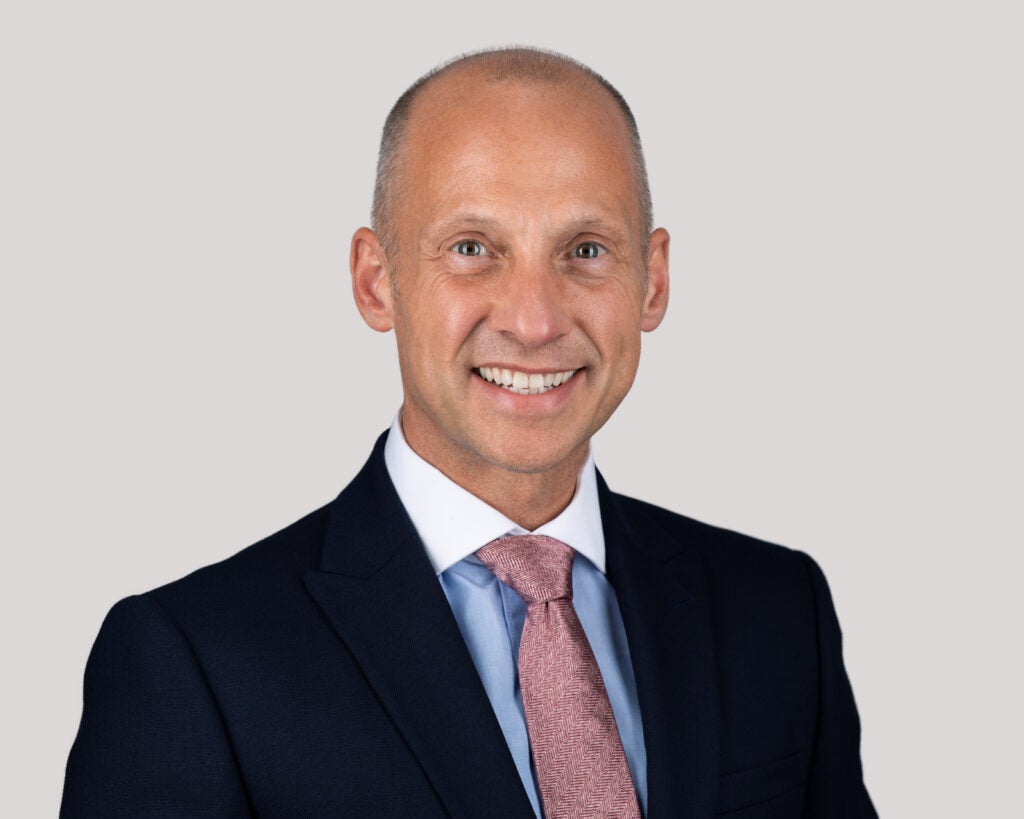
During the Covid-19 pandemic, technology became crucial to the very personal business of private banking. Is tech here to stay in the sector? How will engagement change between the firms and the clients? Does the entire private banking and wealth management sector need an upgrade? Patrick Brusnahan posed this question to the experts
Legacy systems are a burden in finance, but private banking is well overdue an upgrade. However, in which form will this take?
Anton Sternberg, senior partner, family office, Stonehage Fleming
Complexity for wealthy families is undoubtedly increasing on a number of fronts, which plays to the strength of Family Offices and advisors with the practical experience to cover the broad spectrum of Family Advisory activities. Family units are becoming more complex; the investment universe (especially impact investing and alternative investment opportunities) has expanded greatly; and changing legal, tax and regulatory issues create complexity and often require the consideration of the total family wealth picture. In addition, families and family offices are increasingly aware of the need for additional investment in technology and enhanced concerns around their exposure to cybercrime and ransomware.
Related to the increasing complexity, I expect that family members will increasingly review how and where they want to spend their time and where they wish to be resident in the medium to long-term – not only from a citizenship, taxation and planning point of view, but especially taking into account issues such as health considerations, stability, safety and overall quality of life. I expect that this will increasingly result in families undertaking jurisdictional review exercises, bespoke to their circumstances.
Given the positive trends in financial markets over the last few years, we are seeing an increasing number of financial services professionals (including private equity and hedge fund executives) moving from the wealth generation to the wealth preservation phase of their lives, requiring advice on the establishment of a broad-based family office infrastructure. Given their backgrounds, these individuals will often wish to actively deal with some of the investment aspects of their wealth, and value the independent review, oversight and experience of the wider family wealth that a family office brings. This includes careful planning for the transfer of wealth to subsequent generations, in line with their own particular philosophy around the purpose of the wealth.
David Jervis, global client officer, C8 Technologies
The financial services industry, like many others, faces client demands for scaled customisation and increased transparency. Investors, both institutional and retail, want to be able to buy exactly what they want and receive and control it with transparency. Fortunately, technological advances are enabling this process and direct indexing methodology provides those capabilities.
The urgency of the climate imperative and the need for investors to rapidly boost their ESG focus also accelerates a shift away from pooled products like Unit Trusts and ETFs towards portfolios that investors design and implement themselves.
Definitions of ESG compliance vary hugely, but asset owners and investors do not have the luxury of waiting until they coalesce. They are being held increasingly accountable for expressing their investment impact framework and acting upon it. Pooled or ‘one size fits all’ products, though key components of asset management weaponry today, need to be complemented by the more flexible design approach offered by direct indexing. Investors will want less to give their capital to others to manage, preferring, now that technology allows it, to invest it directly and accurately whilst retaining control over its various return streams and impact.
Younger generations of investors are at ease with technology, likely to pull away from the status quo almost by default and used to having the power to customise delivered to the device in their hand. This is the democratisation of investing, the disintermediation of its industry, and, arguably, a rebellion against its layered fees and practices. Add to the above, the weight of the climate emergency and you have an explosive shift in behaviour and expectation that is likely to re-shape everything starting, at base, with the very definition of ‘returns’. What good are percentage gains in the value of an investment if that investment provides negative value in the race to create sustainability?
The speed of change will surprise, as it has in other industries, as technology gains tend to turn decades into years or, perhaps, months. Financial services practitioners have to adapt quickly to allow their asset owner clients to customise exposures directly with full cost transparency or they will be bypassed, in the same way that corporations who are unreactive to ESG expectations, will see funding go to those who are deemed to be doing more good.
Greg Kyle-Langley, executive director, head of entrepreneurs, Coutts
2022 will be the year to get out of reactive mode, just making hybrid working work, and into proactivity – designing our teams, operations, and communications to maximise the productivity opportunity it presents. All while solving the conundrum of how to train and engage your junior relationship managers and support teams. I expect to see some movement of adviser talent as people reassess what they want from their experience of work, and migrate to an organisation that best fits with their life, and prospecting style. 5 days in the office is unlikely to win many hearts.
Bitcoin will become a difficult teenager. Created in 2009, the cryptocurrency is becoming a significant asset class. Many clients are playing with it, some making serious money. I don’t think we can say ‘stay away’ forever. Yes it’s volatile, yes there is murky money to avoid. But I think in 2022 we’ll all need to engage with it more.
Calum Brewster, head of private banking and client solutions, Brown Shipley
Prior to the pandemic, we were already seeing a steady increase in the number of clients interested in using our online functionality to cover some of their wealth management needs. However, since the pandemic, there has been a significant increase in clients who proactively want to engage with us digitally. As a business, we quickly adapted to remote working (due to the first COVID-19 lockdown in the UK in March 2020) and enhanced our digital channels to continue meeting client needs.

Calum Brewster, head of private banking and client solutions, Brown Shipley
We further developed our digital tools and enhanced the capabilities of our MyBrownShipley app – clients can receive an indication of the lending potential of their portfolios as well as instant access to their investments. This is alongside other digital tools such as IDNow, which enables us to ID clients electronically.
Despite having comprehensive digital tools, wealth management is a relationship-led business and there is a continued need for face to face contact with clients, particularly for newer relationships or where there the client has more complex financial requirements. Virtual meetings and online tools complement what we do and add another string to our bow.
Another strong theme is diversity and inclusion. As a profession, wealth management needs to continue to develop its approach and agenda so to ensure the broader industry reflects society more comprehensively, which will be good for colleagues and clients. We are committed to building a diverse and inclusive culture and have made significant progress to ensure D&I is at the core of all our activities. As part of this, we have colleague-led initiatives alongside partnerships with organisations including LGBT Great, PIMFA and WealthiHer. D&I will continue to be a priority for us, and many of our peers, over the coming years.
Leonardo Brummas Carvalho, CEO, Aquarius Financial
Banks need to continue to accelerate the digitisation of their services. Old/legacy IT infrastructures have clearly not helped the migration to new systems, but in my view, certain banks have also not invested enough time and effort in said systems, nor have they integrated technologies like AI to make clients’ lives easier.
Banks had all the data (and the capital) they needed to consolidate certain services. However, because of the lack of vision and investment in new technologies, they missed the opportunity, which is why we’re seeing all the challengers gaining market share.
Generally, banks all claim independence when it comes to products and services. Although only a few of them are really committed to having completely open architecture. This is still a relevant topic that needs to be addressed.
I would say generally that clients have gained much more confidence and expertise when it comes to investing their money compared to when I started almost 25 years ago.
Robinhood and other investing platforms have certainly accelerated the process of democratising investments. A good example is that today, you can basically buy a portion of a share and invest $100 in a stock that’s valued higher. This has lowered entry barriers and has granted youngsters access to financial markets.
Certain people would say that this can be dangerous, and I do see the risks of having a very volatile market created by retail investors, but I also see this as an opportunity. The sooner people familiarise themselves with how to handle their finances, the better. You don’t want to learn to invest – and maybe lose money – when you’re in your 60s. It is therefore much better to understand the risks of financial markets when you’re young when the stakes are much lower. This trend was very evident during the Reddit/GME saga.
I am particularly interested in AI and its adoption in medicine, including once it will be completely integrated into our bodies as a booster. Specifically, in traditional medicine, we have always been one stop behind – meaning that people go to the doctors when they feel bad.
AI, however, will enable new medicine to anticipate patterns through understanding the genome and a person’s lifestyle, which will mean it can make very accurate predictions. In other words, machines will be able to anticipate diseases decades before they happen. This means there’s an opportunity to take the necessary corrective steps and it will be a gamechanger for humanity.
Imagine your phone and how attached/dependent on it you are. The only step missing now is the full integration of your phone into your body. There are already many companies out there testing the integration of chips in different parts of our bodies, including the brain. The difference comes down to velocity, which is that to access information, you need to open the phone to figure something out. But in the future, it will be connected to us using electronic signals, which will therefore deliver the information you need in a fraction of a second.
Fundamentally, this step will be revolutionary as it will allow humans to perform activities that we could not previously perform and execute much more complex mental operations.
Nikolai Hack, head of strategy & partnerships, Nucoro
As we move into 2022, adoption of digitalised financial services, and in turn expectations among HNWIs, will continue to gain pace exponentially. Wealth managers, investment managers, and financial planning advisers need to acknowledge this sea-change and put customer experience (CX) at the heart of their operations to keep up. There are two ways wealthtech can help them do this going forward: embedded wealth using APIs and hyper customisation.

Nikolai Hack, head of strategy & partnerships, Nucoro
Embedded wealth has been a term that has cropped up more and more over the last year and will continue to do so. On a simple level it means that firms can embed propositions into their existing channels to cross-sell to existing and future customers. Easy to see why it has caused a resounding buzz in the market – but it is important to see the bigger picture here too.
Embedding an investment proposition somewhere in the customer journey where a purchase decision logically makes sense has the power to broaden the context in which we think about money. An example of this could be to offer an investment product to accumulate funds for a down payment and then following up with a mortgage proposal when the client is ready to buy their property. In this instance they could embed the investment product as a ‘think about your future’ trigger.
Building out functionalities and customised journeys marks a huge leap from the product-led approach of the past towards a more intuitive CX-led future. This will also inevitably lead to better customer retention and satisfaction in the long term.
We’re heading into the next wave of asset management – where firms will increasingly move away from traditional funds to customised portfolios that firms offer directly to customers. In essence this means everyone can invest as if they were a private banking client and the democratisation of wealth management; a real upgrade.
Held back by legacy tech stacks and deeply ingrained cultures, it’s impossible for most firms to provide tailored and scalable portfolio management by themselves. This is where wealthtech can provide a solution as third parties can work with large institutions to offer customisable investment products to millions of customers.
Surfacing and using already existing data and robotic process automation are the foundation to provide the types of hyper personalised experiences that consumers are coming to expect. This approach can help the firm take on more of a ‘trusted advisor’ role, where they can both anticipate needs and also serve them on an individual per-client basis.







